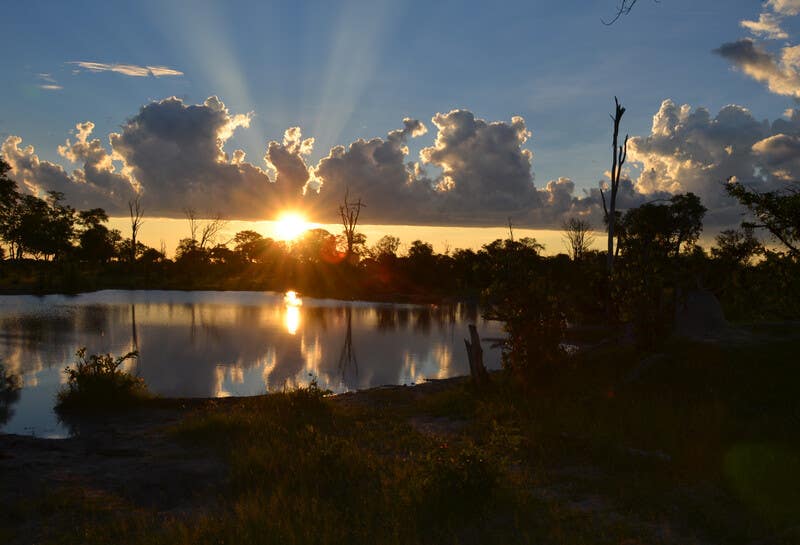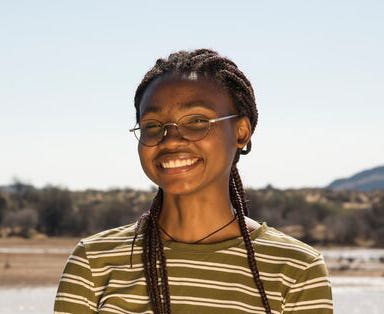I have a certain freedom, especially in a peaceful nation, that I can use to bring attention to a lot of what our generation needs. That's what drives me.
Though in many ways, she may seem like a “typical” college student, bopping from lectures to the lab to her internship, Veruschka Dumeni is anything but typical. Instead, she’s an activist standing up for her country’s future. And that takes a lot of time and energy. “I can tell you that it's a lot of walking. All I know is that I walk a lot because I have to go from one place to the next.”
Veruschka has places to go. As a student studying biology at the Namibia University of Science and Technology, she is realizing a lifelong dream. “Since high school, I've always been interested in biology, but I have never really had role models in the field of biology except for medicine,” she said. “I grew up in nature, in the village, so it always feels like coming home. I knew what my heart wanted, I just needed to find an academic path that would lead me to some equivalence.”
While in school as a budding scientist, she became acutely aware of the threat of climate change. “After so many months watching Greta Thunberg do her wonderful work abroad and all these youth stand up for what is right and what is needed, I started looking into what it is that we have in Namibia.” That’s when she found the local chapter of Fridays for Future, an international movement of students who demonstrate to demand action from political leaders on climate change and the transition to renewable energy.
The group has been working since 2019 to get a ban on logging and timber harvesting in the Zambezi region as well as ending fossil fuel extraction and coal plants in Namibia by 2030. It was in August 2020 that she first heard of Canadian company ReconAfrica’s project exploring for oil and gas in the Okavango River Basin. “At first, when I read the headlines, I thought no way, there is no way this is happening in the Okavango region,” she said.
Ever since then, Veruschka has worked with many organizations and experts to draw international attention to what ReconAfrica is doing in the Okavango ecosystem.
The organizations have held physical demonstrations at ministerial buildings, marches, and started petitions. The covid-19 pandemic forced them to shift their strategy online, launching “Twitter storms” and leveraging other social media platforms, as well as sending emails to government and industry officials.
For Veruschka it’s all part of a larger picture. “I think anybody who has connected with the natural world will be concerned about the climate crisis. Anybody who has seen social injustices will be triggered by the consequences of the climate crisis, especially for those that are vulnerable.”

